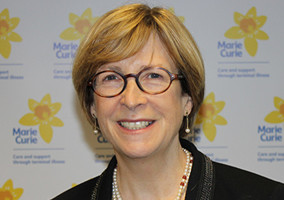Charities are enthusiastic about digital but are still not engaging with it in a transformational way, an audience of charity finance directors were told yesterday.
During a seminar on digital maturity which took place as part of Charity Finance Week and which was supported by the technology company ojo solutions, Brani Milosevic, managing director of Digital Leadership Ltd, revealed the trends she has picked up from her involvement with charities.
She said her view was informed by the 130 charities which have completed her company’s digital maturity test.
Milosevic said: “I am pleased to see that attitudes are changing and people are becoming more aware that something needs to be done in this area, but the thinking is still not transformational.
“The thinking is still more about digital as a channel rather than digital as a culture that is changing our supporters, and our beneficiaries, and is changing how they engage with brands.”
Milosevic added that digital budgets are mostly being invested in technology, but that this needs to be backed up with investment in skills, otherwise people won’t know how to use the tech properly.
She said: “Not only do we need to figure out the particular skills for particular jobs, but we also need to help the learning and development teams to develop programmes for this.
“I find that there aren’t any more enthusiastic people about digital transformation than learning and development teams, but they really don’t know where to start, so you need to hand-hold them and help them.”
Embedding technology into strategy
Also speaking at the event was Catherine Murray-Howard, director of strategy and business development at the Disabilities Trust. She talked about how her charity undertook a major digital transformation programme where the strategy had technology at its heart rather than parallel to it.
Referring to the eight key parts of the charity's strategic vision, she said: “Every single bit of that has a tech solution to it if we think about it properly.
“Unless you involve technology in a £55m organisation that stretches from Glasgow to Devon, you aren’t going to achieve all of those things.”
She also emphasised the difficulty of achieving organisational change in the charity sector. “You can do your theory but things continue to move slowly. It’s how we work through that with our partners with a clear vision, understanding that we need to take people with us.”
She said that she had sought to ensure the people the charity supports would benefit from the new technology, rather than “doing it for its own sake”.
Nathan Baranowski, managing director of ojo solutions, advised charities to be adaptive as they progress their transformation. “When we’re transitioning, we feel that we need to plan in a linear way. But the reality is that when we start to adapt that technology, start to think about the capabilities, what we wanted at the outset is now very different.”
Referring to strategies more broadly, he added: “If you’ve got a three or five-year strategy, can you say that you’ve implemented that to the letter?”
Baranowski advocates grounding any technology change in a clear and shared vision of the future that articulates where the charity wants to be.
“The starting block has to be looking at your business strategy, and from there asking “how can technology help me?” Once you’ve started to understand that, ask some simple questions to ground those answers in clear business rationale and benefits.”
|
Related articles











